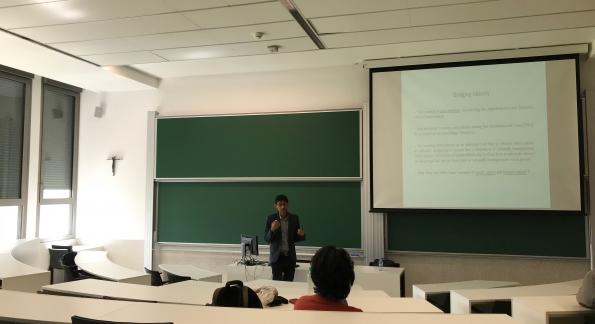
A total of 4.3 million immigrants flew into one of the 28 European Union (EU) Member States in 2016. 2 million of those came from non-EU countries, each with a different background, culture and identity. Moreover, more than a million migrants and refugees crossed into Europe in 2015, with eight out of ten of them coming from war torn countries such as Afghanistan, Iraq and Syria. Others risk their life in the mediterranean escaping from human rights abuses in African countries.
With an increasing migration and increasing support against immigrants in european countries, the question is: what can we do to integrate them in society? “This debate has to be if either immigrants should assimilate the national identity or if they should be allowed to form their own communities and retain their own identity. But it is also about whether if they should be dispersed or concentrated in certain neighborhoods”, said Zaki Wahhaj, professor at the University of Kent who came to present his investigation Social Diversity and Bridging Identity last April 30th at the University of Navarra.
“The reason why we started this project was because in basic arguments on this topics there was something missing: perhaps the majority of the population has to take some actions for successful integration”, Wahhaj argues. The study explores under what conditions does increased social diversity within a population raise the potential for conflict as opposed to harmonious social diversity.
The investigation finds three results. First that depending on the pace of change, immigration can lead to more culturally mixed groups or increased segregation along cultural lines. Second, it predicts that offsprings of immigrants can be worse off than their parents when they, which have higher levels of bridging identity, join a segregated group. Finally the study finds that a temporary negative shock to bridging identity can cause a process of segregation and cause outmigration from culturally mixed groups.






